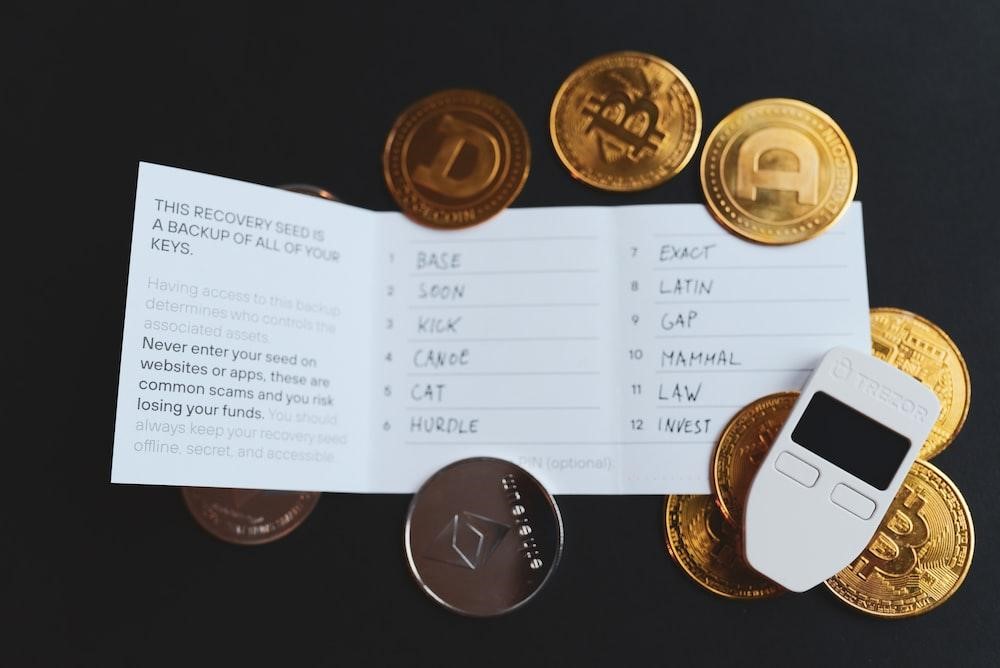
As in the case of possessing any asset, you need to store your crypto in a secure place to ensure no one steals it. That place is an application that serves as an online bank account, and that’s called a wallet because it acts similarly to a physical wallet in which you hold your cards and cash. But there’s something additional and unique about this type of wallet: it doesn’t store your coins per se but the keys associated with your funds. After all, it’s this very key that puts you in charge of your crypto, and if it’s forgotten or stolen, you’ll no longer have access to your treasured digital goods. This wallet also provides a special advantage: it gives you full control of your assets. Compared to storing crypto on an exchange, this feature is quite favorable. That’s because exchanges are in control of users’ virtual coins. So, after you buy Bitcoin from an exchange like Binance, ensure you move it into a wallet to safeguard the related keys.
But to use a crypto wallet to its full potential, you first need to understand what it is, what are the types and how it works. Here’s some valuable info on the wallets so you can play with crypto.

What is a crypto wallet for?
To understand crypto wallets, you first need to understand the underlying technology of cryptocurrency – blockchain. This highly advanced tech helps keep data in the so-called “blocks”, i.e., records of every transaction that takes place in the network, the balances held at a particular address, and the possessor of these balances’ key.
Digital currency isn’t stored anywhere. These wallets are software applications that keep only bits of data associated with your public address. Thus, the wallet is software that lets you interact with balances and move cryptocurrency in and out. Most such applications will allow you to send, receive, and store coins through various methods.
Generally, you introduce the receiver’s wallet address, select the desired amount, use your unique private key to sign the transaction, pay a corresponding fee, and send it. However, the methods could vary depending on the wallet’s specific nuances. Some software apps give you the possibility to play with crypto in many different ways, including staking rewards and swapping between tokens. Some will also provide access to decentralized applications, known as dApps.
Non-custodial wallets
You might have also heard about non-custodial wallets but have no clear idea of what they are. Well, non-custodial wallets don’t involve a third party looking after your coins for you, and you should look for such a wallet if you want total control over your assets. Surely, if you run a corporation holding a huge amount of cryptocurrency, you’re advised to choose a custodial wallet that provides the watchful eye of a professional custodian.
Should you get your private key stolen or lost, you’ll be able to restore your wallet using a seed phrase – a top-secret string of words (usually 12 or 24) that serves as a sort of lifeline. An example of such a phrase is “airport bedroom impression sample reception protection road shirt…” which may seem nonsensical at first, but it’s developed and connected to your keys by your electronic wallet. It’s recommended to be cautious regarding the place this seed phrase is stored, as if someone finds it, they’ll be able to steal your funds. Consider thus holding parts of it in distinct places.
Crypto wallet types
Today’s modern technology has allowed for the development of several types of wallets, which you’ll be choosing based on your very needs and preferences. We’ve already familiarized you with the two main wallet categories – custodial and non-custodial.
But there are also two critical subtypes – hot and cold or software and hardware. The main difference between them is that a hot wallet is connected to the Internet, while a cold wallet is a physical device that holds private keys offline. There’s also the subcategory of paper wallets, but this is often associated with cold storage.
So, let’s learn more about these – maybe at the end of this article, you’ll be able to choose a wallet that aligns with your goals. Have a look at types of crypto wallet below.
Software wallets
Software wallets are applications for mobile devices and desktops. They hold private keys online and can be either custodial or non-custodial. One of the most common combinations of wallets includes a non-custodial software hot wallet – that means you’ll have your cryptocurrency stored on an app installed on a laptop or mobile device and have total control of your assets.
The three primary categories of software wallets include mobile wallets, desktop wallets, and web-based wallets. A software wallet is a go-to option if you don’t own vast amounts of crypto and use them for trading. However, if you’re about to invest for the long term, i.e., HODL, you’ll ideally go for a cold storage method.
Hardware wallets
Cold wallets are often called hardware because they imply physical devices such as USB sticks to store cryptocurrency. This means coins aren’t held online but far from an Internet connection. Transaction signing is thus made more secure, as no one has access to private key information or any trace of your crypto activity.
Modern hardware wallets come with a suite of features, including signing transactions automatically. This will make it impossible for a potential hacker to record your screen or log your keystrokes. With this kind of wallet, you have to purchase it from a trusted supplier.
Buying secondhand will expose you to malware or a faulty device risk. Well if you don’t have any idea how to open a cryptocurrency wallet, here’s a beginner’s guide which you can checkout to get one!
Cold wallets are indeed the safest when it comes to crypto storage, but they pose a similar risk in case of loss or theft – you won’t be able to restore them. That’s why it’s imperative to keep close tabs on your device and store it securely, perhaps in a safe box. Some people go so far that they bury a paper containing their private keys,
Now that you’ve grasped the essence of crypto wallets, which one are you going to use? Please let us know about your thoughts in the comments below and don’t forget to share you’ll need a wallet to play with crypto guide with your friends and family members on social media!







